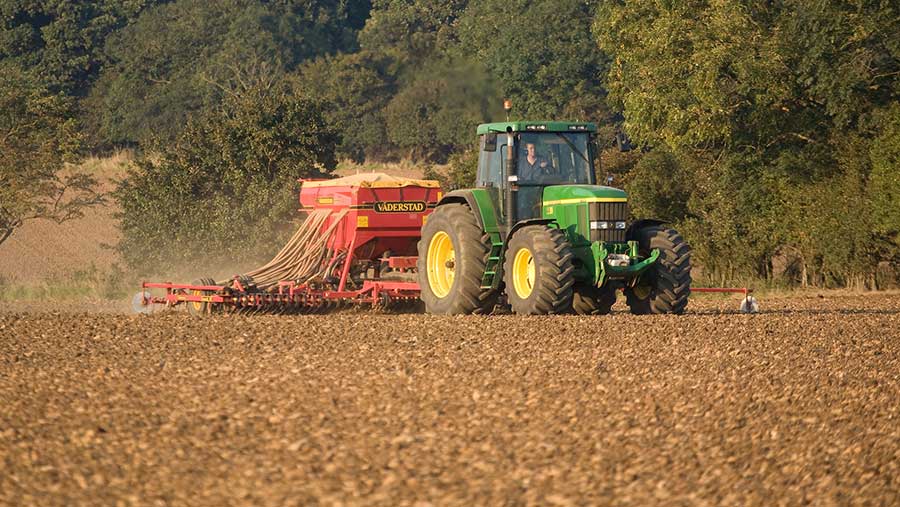SFI and CS payments to be higher and fairer, promises Defra
 © Tim Scrivener
© Tim Scrivener Defra has pledged that payments under the Sustainable Farming Incentive (SFI) and Countryside Stewardship will be regularly reviewed to make sure they give a fairer return for farmers.
Janet Hughes, Defra’s future farming and countryside programme director, acknowledged that rates for Countryside Stewardship had not been updated since 2013, so the department was now reviewing them to bring them up to date.
The results of that review should be published before the end of this year.
See also: What’s on offer for farmers as SFI take shape
Defra has already updated the payment rates for SFI soil standards, so they are about 30% higher than if they had used the existing way of calculating them, she said.
It intends to publish information later this year on what the payment rates will look like for other standards in the SFI.
“We have said we will regularly review the payment rates,” she said.
“We haven’t decided yet how we will do that and how frequently, but we do not want to get into this situation again where we have payment rates eight years old, which are obviously out of date.”
‘Not fair’
Ms Hughes was answering questions during a question and answer session involving members of The Farming Forum, where payment levels and how they will be calculated proved to be a hot topic.
Although some farmers had suggested payments should be index-linked, this was tricky, as the rate of inflation for one type of cost would be very different to that of another cost over time, she said.
Defra had also looked at alternative ways of calculating payments, such as payments by results, but had concluded that this was very complicated and not fair.
“You might do the same thing on one farm as has been done on another and just due to the weather or particular soil type you don’t get the results – so therefore don’t get the money,” she said.
As a consequence, the government was sticking to more of a cost- and income-based approach, although it has moved away from its existing calculations in a bid to make it better.
Ms Hughes was warned that some farmers were currently finding they would be worse off entering the SFI pilot, because the payment rates were not high enough to justify taking additional land out of production.
But she stressed that there was potential for payments to change, based on the feedback from farmers and the outcome of the payment review.
“This is why we have a pilot, so we can find things out before we roll things out at scale,” said Ms Hughes.
Deadline extended
Defra recently announced that it had extended the deadline for applications to the pilot SFI scheme from the beginning of September to the end of September.
“We know some farmers wanted more time, given the busy farming period, so we have extended the deadline to 30 September to allow everyone more time to apply,” a spokesperson said.
“We will announce the number of applications once the window closes, but we are confident of exceeding our application target. We are happy with the level of interest so far received.”
